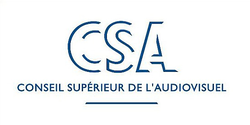Sectors
June 25, 2019
Breaking news

Le 24 juin 2019, le Régulateur irlandais a publié un rapport visant à participer à la consultation publique lancée par le ministère de la Communication, portant à la fois sur la façon dont il convient de transposer la directive européenne sur les services audiovisuels et sur la perspective d'une loi nationale sur la "régulation des contenus dommageables sur les plateformes en ligne".
Pour le Régulateur, le rapprochement des deux actes législateurs offre une opportunité d'une régulation globale des "médias en ligne", offrant à l'internaute une "sécurité" que la simple transposition de la Directive ne permet pas. Ainsi la seconde loi complétera la première.
Pour le Régulateur, la loi nationale à adopter doit permettre au Régulateur de donner une pleine sécurité à l'internaute irlandais ("online safety"), en retirant les contenants violents ou dommageables (le terme harmful est difficile à traduire par un seul mot en français) et en l'avertissant à propos de ceux-ci.
Comme l'explicite le rapport (p.52) :
The BAI considers that the following four strategic objectives and responsibilities are relevant for an online safety regulator operating within the new media regulatory structure: • Rectifying serious harms occurring to Irish residents through their use of online services. • Ensuring that individuals and members of groups that are frequently subject to harmful online content can fully benefit from digital technology and social media. • Reducing online harms by introducing online safety rules for online platforms. • Promoting responsibility and awareness of online safety issues among the general population and industry. To fulfil these objectives and responsibilities, the BAI considers that the Online Safety Regulator could have the following three functions:
1. Operating a statutory mechanism to remove harmful online content that directly affects Irish residents (Rectification of Harm)
2. Developing and enforcing an online safety code for Irish-resident online platforms (Minimisation of the potential for Harm)
3. Promoting awareness of online safety issues among the public and industry (Preventing Harm). Ensuring that online services play a more effective role in tackling online safety issues can provide wide, “collective” benefits to large numbers of individuals simultaneously.
Visant expressément Youtube et Facebook, qui en Europe ont choisi de se localiser en Irland, le Régulateur demande une Régulation des plateformes de partage de vidéos qui doit, à travers un Code s'appliquant à eux, permettre de régir leur activité qui se déploie à travers toute l'Europe. Ce Code aurait vocation à rappeler en premier le principe de la libre expression. Tout en organiser la "sécurité en ligne" de l'internaute.
Le Régulateur irlandais des Médias sera en charge de cela. Et puisque les opérateurs sont localisés en Irlande, ses conceptions et ses actions auront donc un effet européen : comme le dit le Président de l'Autorité de Régulation lui-même : " This is a particularly important issue for this country, given that many of the majoar international platforms are based her. Ireland has a unique opportunity - and responsability - to lead the debate and chart the way forward in relation to online safety and regulation".
____
"to lead" ?
Il n'est pas certain que les autres régulateurs nationaux ni la Commission européenne partagent une telle conception irlando-centriste de la régulation euroréenne des médias.

Nov. 3, 2016
Breaking news


Oct. 24, 2016
Breaking news
July 23, 2016
Breaking news

On 20 July 2016, the Conseil Supérieur de l'Audiovisuel (CSA- French "Independant Authority to Protect Audiovisual Communications Freedom") issued a press release in which it directly addresses to its Turkish counterpart.
Read the 20 July 2016 press release from the CSA.
The press release is short. Here is what it says: "Le Conseil supérieur de l'audiovisuel exprime sa vive inquiétude à la suite de la décision du Conseil suprême de la radio et de la télévision (RTÜK), le régulateur des médias en Turquie, de retirer leurs droits d'émission à de nombreuses radios et télévisions. Le Conseil appelle son partenaire de longue date au sein de la Plateforme européenne des instances de régulation (EPRA) et du Réseau des institutions de régulation méditerranéennes (RIRM) à ne pas mettre en cause la liberté de communication et le pluralisme des médias, garanties fondamentales d'une société démocratique." (courtesy translation: "The Conseil supérieur de l'audiovisual expresses its deep concerns following the decision of the Supreme Council for Radio and Television (RTÜK), the Turkish Media Regulator, to withdraw the broadcasting rights of numerous radios and televisions. The Conseil calls upon its long-time partner within the European Platform of Regulatory Authorities (EPRA) and the Mediterranean Regulation Authorities Network (RIRM) not to jeopardize the freedom of communication and media pluralism, which are fundamental guarantees in a democratic society").
The press release is entitled "Le CSA s'inquiète du retrait par le régulateur turc des droits d'émission de radios et de télévision" (courtesy translation: "The CSA worries about the decision of the Turkish Regulator to withdraw broadcasting rights to radios and televisions").
____
Isn't this surprising?
One would understand that the members of a Regulatory Authority, just as many people, would worry about what has been happening lately in Turkey. One can also share the view that these events might cause them to fear for the sake of public liberties and democracy in the country.
Should a Regulatory Authority express its "worry" though?
Shouldn't it be the Government's role instead, within the framework of its 'diplomatic relations' with the state and with the use of an appropriate vocabulary, to express any 'worry'?
First of all, this is a salient example of the ambiguity of the Audiovisual Regulator. Indeed, while it itself insists on the fact that it acts as an economic regulator of a sector whose development and innovation falls under its watch and monitoring (which namely justifies the fact that he reviews candidacies to the presidency of public televisions channels), the Conseil Supérieur de l'Audiovisuel had initially been created to preserve public liberties.
As such, people who still embrace the distinction that was previously assumed between public liberties regulation and economic regulation still consider the CSA - along with the CNIL - as the prototype of the former type of regulatory body.
Here the CSA expresses its "deep concern" and sends a request not to "jeopardize liberties", which is the polite version of an injunction, to a foreign regulatory authority upon which it has no authority whatsoever.
One can understand that the Regulator develops soft law about operators on which he has actual authority. But what about here? Shouldn't the adage Nemo plus juris apply?
How is the Regulator competent to issue 'releases' in which he formulates desiderata towards a foreign body whose behavior is unappealing to him? Shouldn't the Quai d'Orsay (French Ministry for Foreign Affairs) be in charge?
The Regulator took a political stance here, while it is known that a Regulatory Authority can only be legitimate when it stands as a technical authority; emphasizing on the political features of its job actually jeopardizes this legitimacy, all the more when international politics are involved (which is the case here).
However, the Regulator does preempt criticism in its press release:
It starts indeed by stating that it only expresses this sort of 'feeling' because of the old ties that exists between the French and the Turkish Regulators: it essentially considers that friends can be true to one another, express a few criticism and expect changes. Friendship in the digital media and in politics would allow for many things.
Besides, the CSA recalls the solidarity that prevails between the two regulators. Because they are "long-time partner within the European Platform of Regulatory Authorities (EPRA) and the Mediterranean Regulation Authorities Network (RIRM)", the French Regulator is enabled to express the Turkish Regulators its view on how it is jeopardizing democracy and how it should consequently stop.
Maybe the many ties that exists between the Regulators now enable them to give more or less stringent advice to one another, whereas diplomatic embassies now play an increasing economic role: how blur do the lines get!

Jan. 21, 2016
Articles


Feb. 20, 2015
Breaking news

Internet needs to be regulated, but by whom and from what criteria?
The high speed building of very different cases shows the urgency of reflections on the principles.
Consider the case in which just entered the British Regulatory Authority Advertising Standards Authority (ASA). Thiss Authority isn't specific to the Internet but the fact the behavior takes place on the Internet doesn't stop the Regulator, the ASA applying its control on "all media".
An Irish betting company organized bets about a future event: conviction or acquittal of Oscar Pistorus for the death of his fiancée. The latter doesn't deny being the author of the fatal blow but claims that he isn't responsible legally.
The website reproduces the accused of a very recognizable way in the form of an Oscar statuette. This is due to the homonymous first name and the statue of the reward. But this is also a triple ambiguity created by the company.
Secondly the statue can't walk as the athlete si one takes off his prosthetic that made him win races.
Thirdly and more than that, if convicted, he remains in prison, Oscar Pistorum would continue to be deprived of his freedom to come and go, and therefore still unable to "walk" freely, the betting firm indicating that it will reimburses money if the accused will "walk" (out of prison - as a sort of miracle ...).
_____
Watching that, more than 5,000 people protested. But before whom? In this excess of regulators, people turn to perhaps the most dynamic: in the UK it is probably the Advertising Standards Authority (ASA) .
But what to blame?
One could have said that it is illegal to bet on the outcome of a trial.
One could argue that you can't bet about a terrible history, whose center is the death of a young woman.
But it's rather toward the disability side and "minority rights" that the case is taking shape. Indeed, associations see it as primarily a mockery of people who can't walk.
Without further developed if the ASA takes a position on this advertising that the company has since removed, it will take a strong position in the regulation of the Internet and could for example clarify and prioritize the interests that must be respect in the virtual world.
Dec. 2, 2014
Breaking news

Internet requires regulation. It does not works solely because of the moral sense of the users or through vigilance of companies that develop on it.
The regulator of the virtual space can be imagined, or a regulator of the various possible activities that develop there, regulators then deploying their powers as when the activity takes place on the Internet. Thus, it is the case of advertising.
In the UK, the Advertising Standard Authority (ASA) monitors the advertising business, also on the Internet.
Its decision of 26 November 2014 is remarkable for several reasons. It punishes two non-professionals, namely two users Youtube tool. But in communication, non-market entrepreneurs sometimes have more weight than businesses. But on the Internet, users can sponsor their free activity, which is to monetize. In this case, the two had played on their Youtube channel short films that were advertisements.
The complaint made against them is that Youtube is not a support on which those who put content make it to commercial purposes. And other users could not understand they watched the advertisement and not a distraction film or information.
The Regulator imposes a sanction against Internet users not because they did a promotional contract with the company, in this case Cadbury wich wants to promote Oreo cookies. By this contract, the entreprisee via the famous Internet users can reach consumers, which is permissible. They are punished because they have deceived the confidence of the other Internet users who can't imagine being the target of an advertisement. The fact that it is people with many fans on youtube counted in the severity of the Regulator. Indeed, they have more than 2 million subscribers. More than 1.3 million have seen the offending video. Only 243 people have not loved it.
Updated: Sept. 25, 2012 (Initial publication: April 10, 2010)
Sectorial Analysis

Main information
The United States Court of Appeals for the District of Columbia Circuit strikes down a decision that the Federal Communications Commission (FCC), the American telecommunications regulation agency, had taken against an Internet service provider, on the grounds that the FCC is incompetent to impose the theory of network neutrality on Internet service providers.
Updated: Sept. 25, 2012 (Initial publication: June 2, 2010)
Sectorial Analysis

FRENCH
Le 27 mai 2010, la Broadcasting Sanctions Committee (Commission des Sanctions de l’Autorité britannique de régulation des communications électroniques et de l’audiovisuel (Ofcom) a sanctionné pour un montant de £225.000 Teletext Limited, validant en outre la révocation administrative opérée le 29 janvier 2010 par Ofcom de la délégation de service public concernant la fourniture de services de télétexte, suite à la cessation unilatérale de la diffusion de ceux-ci par Teletext le 15 décembre 2009.
L’Ofcom (The Office of Communications — le régulateur britannique des télécommunications et de l’audiovisuel), a annulé le 29 janvier 2010 la délégation de service public accordé à Teletext Limited pour la fourniture de services de télétexte, et a rendu le 27 mai 2010 un arrêt de sanction de £225.000 à l’encontre de ce dernier, pour avoir unilatéralement cessé de diffuser les services de télétexte le 15 décembre 2009, alors que sa licence n’expirait qu’en 2014.
GERMAN
Teletext Ltd. hat am 27. Mai 2010 eine Strafe von £225.000 von der Ofcom's Broadcasting Sanction Committee (die Sanktionskommission der britischen Medienaufsichtsbehörde) bekommen. Grund dafür ist, dass Teletext Ltd. am 15. Dezember 2009 einseitig aufgehört hat, die Teletextsdienste, für die sie von einer Übertragung öffentlicher Diensten bezug, zu leisten. Diese Strafe bestätigt auch die Amtsenthebung, die am 29. Januar 2010 infolge der einseitigen Entscheidung von Teletext Ltd., verkündet wurde.
Die Ofcom (The Office of Communication - die britische Mediensaufsichtsbehörde) hat am 29. Januar 2010 Teletext Ltd. aus seiner Amt enthebt, da die Firma am 15. Dezember 2009 einseitig aufgehört hat, die Teletextdiensten zu liefern, für welche sie tätig war, obwohl seine Lizenz noch bis 2014 gültig war. Infolgedessen hat am 27. Mai 2010 die Ofcom auch eine Geldstrafe von £225.000 gegen Teletext Ltd. verhängt.
SPANISH
El 27 de mayo del 2010, el Comité de sanciones de emisoras del Ofcom (la oficina británica de comunicaciones) multó a Teletext Ltd. la cantidad de £225,000 después de que Ofcom haya revocado la licencia pública para los servicios teletext el 29 de enero del 2010, acto necesario en vista del cese unilateral de emisiones que Teletext Ltd. dio a los servicios telextext el 15 de diciembre del 2009.
Ofcom (la Oficina de comunicaciones), la autoridad regulatoria de audiovisuales y telecomunicaciones de Gran Bretaña, revocó la licencia pública teletext de Teletext Ltd. el 29 de enero del 2010 y sancionó a éste con la cantidad de £225,000 el 27 de mayo del 2010 por haber unilateralmente cesado las emisiones de servicios teletext el 15 de enero del 2009, antes de la caducidad de la licencia en el 2014.
Updated: Sept. 25, 2012 (Initial publication: Feb. 10, 2011)
Sectorial Analysis

FRENCH
Fiche thématique (Media): la Hongrie vote une nouvelle loi sur les media qui pourrait violer la Charte des droits fondamentaux de l'Union Européenne.
Le Parlement hongrois a voté une loi le 21 décembre 2010, entrée en vigueur le 1er janvier 2011, qui rend le contrôle indirect des media par le gouvernement très strict. Cela intervient exactement au moment où la Hongrie prend la Présidence tournante de l’Union Européenne. La Hongrie dispose dorénavant de deux semaines pour mettre la loi en conformité avec les standards européens, sans quoi la Commission Européenne commencera une procédure contre le pays.
GERMAN
Thematischer Bericht (Medien) : Ungarn wählt ein neuen Mediengesetz, das gegen die Charta der Grundrechte der Europäischen Union verstoßen könnte.
Das ungarische Parlament hat am 21. Dezember 2010 ein Gesetz abgestimmt, das am 1. Januar 2011 in Kraft getreten ist, und das die indirekte Medienstaatsaufsicht strenger macht. Dies geschieht gerade als Ungarn die wechselnde EU-Präsidenschaft übernimmt. Ungarn verfügt uber zwei Wochen, um das Gesetz vertragsgemäß zu machen. Ansonsten wird die Europäische Kommission ein Verfahren gegen Ungarn einleiten.
Informe temático (medios de comunicación): Hungría vota una nueva ley sobre los medios de comunicación, lo cual podría infringir sobre la carta de derechos fundamentales de la Unión Europea.
El Parlamento húngaro votó una nueva ley el 21 de diciembre del 2010, lo cual entró en vigencia el 1ero de enero del 2011, en donde se estipula que los medios indirectos de comunicación del gobierno serán sujetos a un control más estricto. Este suceso ocurre en el mismo instante que Hungría toma la Presidencia del Consejo Europeo. Hungría ahora tiene dos semanas para armonizar esta ley con los estándares europeos, y si falla en este intento, la Comisión Europea comenzará un procedimiento legal contra este país.
Updated: Sept. 25, 2012 (Initial publication: May 13, 2011)
Sectorial Analysis

PORTUGUESE
Informe temático (Mídia): A Autoridade de auto-regulação em matéria de propaganda proíbe duas faltas propagandas.
O Júri para deontologia em matéria de publicidade ordenou que duas das propagandas governamentais sobre criação de gado fossem retiradas do ar, porque elas teriam difundido que a criação de gado seria um negócio familiar desenvolvido em harmonia com o meio ambiente. Esta sanção ilustra o poder da auto-regulação.
ITALIAN
Relazione tematica (Mass-media): L’autorità di autoregolazione dei pubblicitari impedisce la pubblicazione di due pubblicità menzognere.
La Jury for Advertising Deontology ha vietato la diffusione di due messaggi pubblicitari dello Stato relativi agli allevamenti animali, in quanto affermavano che l’allevamento dei bovini è praticato da aziende a gestione familiare e con sistemi che rispettano l’ambiente. Questa sanzione mostra l’impatto dell’auto-regolazione.
Updated: Sept. 25, 2012 (Initial publication: Sept. 19, 2011)
Sectorial Analysis

Main information
An advertisement broadcast in Burkina Faso for an insecticide did not reveal its health risks. The national media regulator published a decision on September 6, 2011 ordering that it be taken off the air and “requested” that the media refrain from broadcasting advertisements dangerous for human health and dignity.
Updated: Sept. 25, 2012 (Initial publication: Oct. 10, 2011)
Sectorial Analysis

Translated Summaries
In The Journal of Regulation the summaries’ translation are done by the Editors and not by the authors
ENGLISH
Thematic Report (Media): The French Competition Authority orders the separation of TPS / Canalsatellite and VIVENDI / Canal + following infringement of the terms of their prior merger clearance
On September 20, 2011, the Autorité de la Concurrence (French Competition Authority) examined whether VIVENDI, Universal, and Canal + had respected the remedies they had made in order to obtain merger clearance during their acquisition of TPS and Canalsatellite. This clearance had been granted by the Minister of the Economy on August 30, 2006, on the condition that remedies be made by the acquirers. In 2009, the Competition Authority unilaterally decided to review whether these remedies were kept. Its decision of 2011 ruled that certain remedies were not kept and ordered the breakup of the new entity and the payment of a fine. In doing so, the Competition Authority behaves as though it were a regulator.
ITALIAN
Relazione tematica (Mass-media): L’autorità francese garante della concorrenza ha ordinato la separazione di TPS/Canalsatellite e VIVENDI/Canal + per violazione degli impegni presi nella precedente autorizzazione di fusione
Il 20 settembre 2011 la “Autorité de la Concurrence” (l’autorità francese garante della concorrenza) ha verificato se VIVENDI, Universal e Canal + avevano rispettato gli impegni presi per ottenere la precedente autorizzazione di fusione durante l’acquisto di TPS e Canalsatellite. Questa autorizzazione era stata concesso dal Ministro dell’Economia durante il mese di Agosto 2006, sulla base degli impegni presi dalle società. Nel 2009, l’autorità garante della concorrenza ha unilateralmente deciso di verificare se questi impegni erano stati rispettati. Nella sua decisione del 2011, l’autorità ha deciso che alcuni di questi impegni non erano stati rispettati ed ha ordinato lo scioglimento della nuova entità ed il pagamento di una multa. Così facendo, l’autorità garante della concorrenza si comporta come un’autorità di regolazione.
.....................
Other translations forthcoming.
Updated: Sept. 25, 2012 (Initial publication: Dec. 12, 2011)
Sectorial Analysis

Translated Summaries
In The Journal of Regulation the summaries’ translation are done by the Editors and not by the authors
ENGLISH
On July 28, 2011, the European Court of Justice rejected an appeal by an Italian digital terrestrial broadcaster against a ruling of the European General Court, which had also rejected an appeal against the European Commission’s condemnation of Italy for having subsidized the purchase or rental by consumers of equipment for the reception of digital terrestrial television broadcast signals, since this was an indirect provision of state aid to the broadcasters.
FRENCH
Le 28 juillet 2011, la Cour de Justice de l’Union Européenne a rejeté un appel interjeté par un radiodiffuseur italienne numérique terrestre contre une décision de la Cour européenne de première instance, qui avait également rejeté un recours contre la condamnation prononcée par la Commission européenne de l’Italie pour avoir subventionné l’achat ou la location par le consommateurs d’équipements pour la réception de télévision numérique terrestre des signaux de télédiffusion, puisque ce fut une prestation indirecte, constitutive d’aides d’Etat au bénéfice des radiodiffuseurs.
SPANISH
El 28 de julio de 2011, el Tribunal Europeo de Justicia rechazó una apelación de un emisor italiano digital terrestre contra una resolución del Parlamento Europeo y del Tribunal General, que había rechazado también un recurso de apelación contra la condena de la Comisión Europea de Italia por haber subvencionado la compra o el alquiler de los consumidores de los equipos para la recepción de señales digitales terrestres de televisión, ya que esta era una disposición indirecta de las ayudas estatales a las emisoras.
DEUTSCH
Am 28. Juli 2011 hat der Gerichtshof der Europäischen Union eine Beschwerde von einem italienischen digitalen terrestrischen Sender zurückgewiesen gegen eine Entscheidung des Europäischen Gerichts Erster Instanz, die auch abgelehnt hatte Einspruch gegen der Überzeugung, in der Europäischen Kommission Italien nach dem Kauf oder Leasing von der Consumer-Geräten zum digitalen terrestrischen Fernsehsignale empfangen subventioniert haben, da es ein indirekter Nutzen war, um eine staatliche Beihilfe für Broadcaster.
ITALIAN
Il 28 luglio 2011, la Corte di Giustizia Europea ha respinto un appello di emittente italiana di digitale terrestre promosso contro una decisione della Corte generale europea. Anche tale Corte aveva respinto l’appello promosso contro la decisione della condanna dello Stato italiano per aver sovvenzionato l’acquisto o l’affitto da parte dei consumatori di un decoder, in quanto costituirebbe un aiuto statale indiretto alle emittenti.
.................
Other translations forthcoming.

